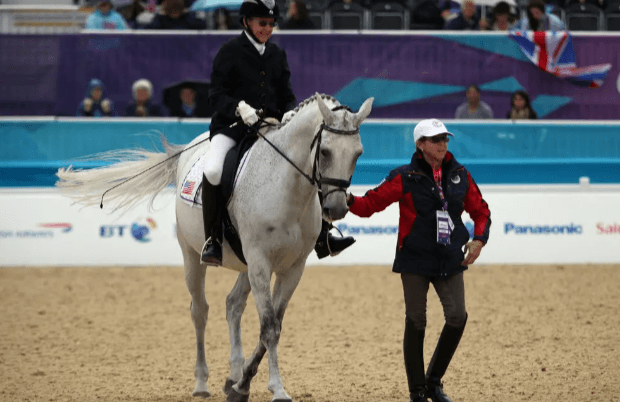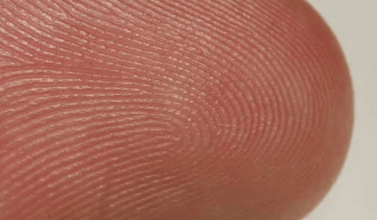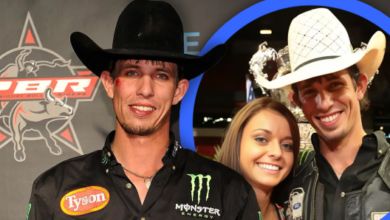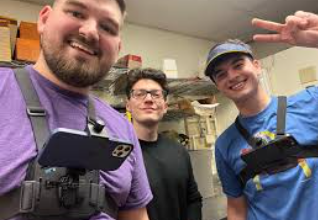What are some inspirational stories of para-equestrian athletes overcoming challenges?

The World of Para-Equestrian Sports
Para-equestrian sports are competitive equestrian events adapted for athletes with physical disabilities. These athletes compete in various disciplines, including dressage, driving, and vaulting. The primary focus is on dressage, where riders perform a series of predetermined movements, judged on precision, smoothness, and overall performance.
History of Para-Equestrian
The history of para-equestrian sports dates back to the 1980s when the International Paralympic Committee (IPC) began integrating equestrian events into the Paralympic Games. Since then, the sport has grown significantly, with increasing participation and recognition worldwide. The establishment of governing bodies and the development of classification systems have been pivotal in promoting fair competition and inclusivity.
Classifications and Competitions
Para-equestrian athletes are classified based on their functional abilities, ensuring a level playing field. Classifications range from Grade I to Grade V, with Grade I athletes having the most significant impairments. Major competitions include the Paralympic Games, World Equestrian Games, and various national and international championships.
Inspirational Stories of Para-Equestrian Athletes
Sir Lee Pearson, a British para-equestrian, has become a household name in the sport. Born with arthrogryposis multiplex congenita, Lee has overcome significant physical challenges to achieve remarkable success. He has won numerous Paralympic gold medals and is known for his extraordinary dedication and passion for equestrian sports. Lee’s journey is a testament to the power of determination and the impact of sports on personal development.
Beatrice De Lavalette is a shining example of resilience. After surviving a terrorist attack at the Brussels Airport in 2016, Beatrice lost both legs below the knee. Despite this life-altering event, she returned to her passion for equestrian sports. Through intensive rehabilitation and training, Beatrice made a triumphant comeback, competing in the Tokyo 2020 Paralympic Games and inspiring countless others with her story of courage and perseverance.
Angelika Trabert: A Life of Overcoming Obstacles
Angelika Trabert, a German para-equestrian athlete, has not let her congenital limb deficiency hinder her ambitions. Known for her mantra, “It’s ability, not disability, that counts,” Angelika has won multiple medals at the Paralympic Games and other international competitions. Her relentless spirit and positive attitude continue to inspire both her peers and fans worldwide.
The Courage of Pepo Puch
Pepo Puch, an Austrian para-equestrian, suffered a severe spinal injury during an eventing competition in 2008. Determined not to let this setback define him, Pepo transitioned to para-equestrian dressage. His perseverance paid off, as he won gold and bronze medals at the London 2012 and Rio 2016 Paralympic Games. Pepo’s story is a powerful reminder of the human capacity to adapt and overcome adversity.
Natasha Baker’s Quest for Gold
British para-equestrian Natasha Baker was diagnosed with transverse myelitis at a young age, leading to significant mobility challenges. Despite these obstacles, Natasha pursued her equestrian dreams with unyielding determination. Her hard work and dedication culminated in multiple gold medals at the London 2012 and Rio 2016 Paralympic Games. Natasha’s journey highlights the importance of perseverance and the transformative power of sports.
Stinna Tange Kaastrup: An Unstoppable Force
Danish para-equestrian Stinna Tange Kaastrup, born without legs, has never allowed her disability to limit her aspirations. Stinna has achieved remarkable success in para-dressage, earning medals at European and World Championships. Her story exemplifies the spirit of resilience and the belief that physical limitations should not dictate one’s potential.
An Interview with Lauren Barwick
Canadian para-equestrian Lauren Barwick’s journey is both inspiring and motivational. After a serious injury left her paralyzed from the waist down, Lauren embraced para-equestrian sports as a means of rehabilitation and empowerment. Her dedication and skill have earned her numerous accolades, including gold and silver medals at the Paralympic Games. In an interview, Lauren shares insights into her training regimen, the importance of mental toughness, and her vision for the future of para-equestrian sports.
Rob Oakley’s Dedication to the Sport
Rob Oakley, an Australian para-equestrian, has faced multiple sclerosis with incredible bravery and determination. Despite the progressive nature of his condition, Rob has continued to compete at the highest levels, demonstrating unwavering dedication to his sport. His story is a powerful testament to the strength of the human spirit and the profound impact of equestrian sports on physical and emotional well-being.
Hannelore Brenner: A Tale of Tenacity
German para-equestrian Hannelore Brenner has overcome significant challenges, including a spinal cord injury resulting from a riding accident. Hannelore’s relentless pursuit of excellence has led her to win multiple gold medals at the Paralympic Games and World Championships. Her story of tenacity and resilience serves as an inspiration to athletes and non-athletes alike.
Equine Partners in Para-Equestrian Success
The bond between para-equestrian athletes and their equine partners is unique and profound. Horses play a critical role in the success of these athletes, offering both physical and emotional support. The stories of partnerships between athletes like Lee Pearson and his horse, Gentleman, highlight the incredible synergy and mutual trust that define para-equestrian sports.
Training and Preparation
Para-equestrian athletes undergo rigorous physical conditioning to enhance their strength, balance, and coordination. Customized training programs address individual needs, focusing on core stability, flexibility, and overall fitness. This preparation is crucial for maintaining control and harmony with their horses during competitions.
Mental Toughness and Coping Strategies
Mental toughness is a cornerstone of success in para-equestrian sports. Athletes develop coping strategies to manage stress, anxiety, and the psychological pressures of competition. Techniques such as visualization, mindfulness, and goal setting are integral to their mental training regimen, helping them stay focused and resilient.
Adaptive Equipment and Technologies
Advancements in adaptive equipment and technologies have revolutionized para-equestrian sports. Specialized saddles, reins, and stirrups are designed to accommodate various disabilities, enhancing comfort and control. These innovations enable athletes to perform at their best, ensuring a fair and competitive environment.
The Role of Coaches and Support Teams
Coaches and support teams play a vital role in the success of para-equestrian athletes. They provide technical guidance, emotional support, and strategic planning. The collaborative efforts of trainers, physiotherapists, and mental coaches contribute to the holistic development of athletes, preparing them for the rigors of competition.
Challenges Faced by Para-Equestrian Athletes
Para-equestrian athletes often contend with significant physical and health challenges. Managing pain, fatigue, and the complexities of their disabilities requires immense strength and resilience. These athletes must balance rigorous training schedules with the need for rest and recovery, navigating a delicate equilibrium to maintain peak performance.
Societal and Cultural Barriers
Societal and cultural barriers can impede the progress of para-equestrian athletes. Prejudices, misconceptions, and lack of awareness about disabilities can lead to marginalization and limited opportunities. Overcoming these barriers demands advocacy, education, and a commitment to promoting inclusivity in sports and society.
Financial Constraints and Funding Issues
The road to the Paralympics is a journey of dedication, perseverance, and excellence for para-equestrian athletes. The Paralympic Games represent the pinnacle of achievement, showcasing the best talent and inspiring audiences worldwide. Continued support and investment in para-equestrian sports are vital for the success of future Paralympians.
FAQs
What is Para-Equestrian?
Para-equestrian is a branch of equestrian sports adapted for athletes with physical disabilities. It includes disciplines such as dressage, driving, and vaulting, with dressage being the most prominent. Athletes are classified based on their functional abilities to ensure fair competition.
How are para-equestrian athletes classified?
Para-equestrian athletes are classified into grades from I to V, based on their physical abilities. Grade I athletes have the most significant impairments, while Grade V athletes have the least. This classification system ensures a level playing field, allowing athletes to compete against others with similar functional abilities.
What equipment is used in para-equestrian sports?
Para-equestrian sports utilize specialized equipment to accommodate various disabilities. Adaptive equipment includes modified saddles, stirrups, reins, and other tack tailored to the needs of individual athletes. These innovations enhance safety, comfort, and performance during training and competition.
How do para-equestrian athletes train?
Para-equestrian athletes undergo comprehensive training regimens that include physical conditioning, mental preparation, and technical skills development. Training programs are customized to address individual needs, focusing on core strength, flexibility, balance, and coordination. Mental toughness and coping strategies are also integral to their training.
Who are some famous para-equestrian athletes?
Famous para-equestrian athletes include Sir Lee Pearson, Beatrice De Lavalette, Angelika Trabert, Pepo Puch, Natasha Baker, Stinna Tange Kaastrup, and Lauren Barwick. These athletes have achieved remarkable success and have inspired many with their stories of resilience and determination.
What are the major para-equestrian competitions?
Major para-equestrian competitions include the Paralympic Games, World Equestrian Games, and various national and international championships. These events provide platforms for para-equestrian athletes to showcase their talents, compete at the highest levels, and inspire audiences worldwide.
Conclusion
The stories of para-equestrian athletes overcoming challenges are a testament to the strength of the human spirit. These remarkable individuals demonstrate that with determination, resilience, and support, it is possible to overcome significant obstacles and achieve greatness. Their journeys inspire and motivate, offering hope and encouragement to anyone facing adversity. Para-equestrian sports not only enhance the lives of athletes but also promote inclusivity, change perceptions of disability, and build supportive communities.





